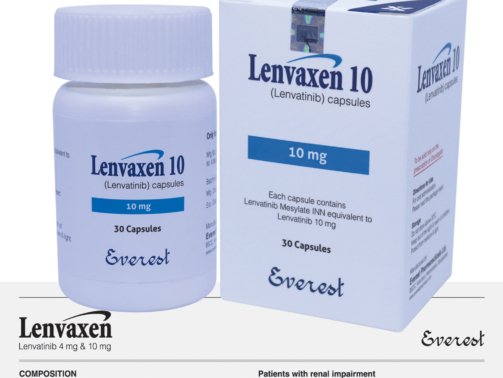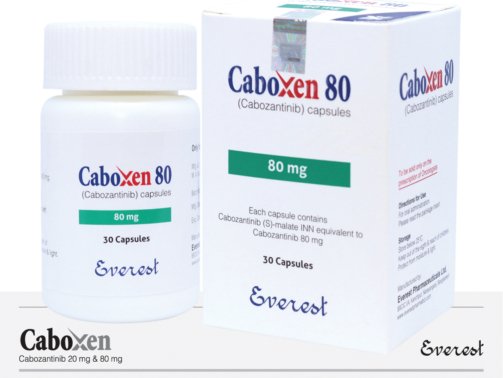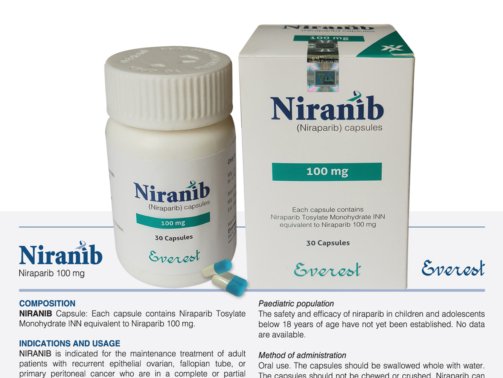Obeticholic 5 mg (Ocaliva)
0.00$
Obetix stands as the exclusive treatment option for patients diagnosed with Primary Biliary Cirrhosis (PBC) when it is combined with Ursodeoxycholic Acid (UDCA), offering a targeted approach to manage this chronic liver disease.
Primary biliary cholangitis (PBC) is an uncommon chronic liver illness that is mainly treated with obeticholic acid, a prescription drug. The brand name Ocaliva is used to sell it. PBC gradually damages the liver’s small bile ducts, which leads to bile buildup, inflammation, and eventually liver loss. Ocaliva can be used alone by patients who cannot tolerate ursodeoxycholic acid (UDCA) or in combination with UDCA by patients who have not reacted well to UDCA alone.
Pharmacological Class and Mechanism of Action
A modified bile acid, obeticholic acid is a member of the class of medications known as farnesoid X receptor (FXR) agonists. The liver and intestines have a nuclear receptor called FXR, which controls the production, secretion, and movement of bile acids. FXR enhances the liver’s ability to eliminate bile acids and decreases their synthesis when it is triggered by obeticholic acid. By doing this, the buildup of harmful bile acids in the liver is less likely to harm liver tissue and accelerate the course of the disease.
Obeticholic acid is essential for delaying the course of liver damage in PBC because it regulates bile acid metabolism and lowers hepatic inflammation and fibrosis.
Dosage and Administration
Ocaliva comes in 5 mg pills, and the dosage is according to the patient’s liver function and tolerance. If the patient tolerates the lower dose and requires more therapeutic benefit, the usual starting dose is 5 mg once day. The dosage may be raised to 10 mg once daily after three months.
Lower initial dosages and close observation are necessary for patients with moderate to severe hepatic impairment (Child-Pugh Class B or C). To avoid medication accumulation and side effects, the frequency of dose may be decreased in these situations (e.g., every other day).
Indications and Use
Obeticholic 5 mg (Ocaliva) has been authorized for:
Adults who do not respond well to UDCA may also have primary biliary choleglitis (PBC) in addition to UDCA.
as monotherapy for those who can’t handle UDCA.
PBC is a long-term autoimmune disease where the liver’s bile ducts are progressively destroyed by the immune system. If left untreated, this illness can result in cirrhosis, liver failure, and liver scarring (fibrosis). Ocaliva slows the progression of liver disease, lessens symptoms including weariness and itching, and aids in disease management.
Clinical Benefits
According to clinical research, obeticholic acid successfully lowers important biochemical indicators of liver damage in PBC patients, including total bilirubin and alkaline phosphatase (ALP). ALP reductions are linked to better clinical results and a decreased risk of complications from the liver. Additionally, using Ocaliva has been linked to a better long-term prognosis, particularly when combined with UDCA.
Side Effects
Ocaliva may have adverse effects, just like any other medicine. Typical adverse effects consist of:
One of the most commonly reported side effects is pruritus, or itching, which may be dose-related.
Weariness
Pain in the abdomen
Rash
Feeling queasy
Having diarrhea
The following are serious but uncommon adverse effects:
unfavorable occurrences associated to the liver, particularly in patients with severe liver disease or decompensated cirrhosis.
Hepatic decompensation, elevated liver enzymes, and jaundice.
severe itching, which can necessitate stopping the medication or adjusting the dosage.
Liver function tests should be used to closely monitor patients, particularly in the first year of treatment.
Warnings and Contraindications
Ocaliva should not be used in people who have:
Total blockage of the biliary system
Decompensated advanced cirrhosis without careful observation
Patients with moderate to severe hepatic impairment should be treated with caution. It is advised to regularly check liver biochemistry in order to guarantee safety and direct dosage modifications. When a patient’s liver function deteriorates or their liver enzyme levels significantly increase, medical professionals should evaluate the benefit-risk balance.
Drug Interactions
Obeticholic acid may have interactions with other drugs that the liver metabolizes. Additionally, especially in patients with poor bile flow, it may impact the absorption of fat-soluble vitamins (A, D, E, and K). For certain people, supplements may be required. To avoid drug interactions, patients should disclose all prescriptions, including over-the-counter medications and vitamins, to their healthcare provider.
Pregnancy and Lactation
Ocaliva’s safety during pregnancy and lactation is still up for debate. Only when the possible advantages outweigh the possible risks to the developing fetus or nursing baby should it be utilized. While undergoing treatment, women who are capable of carrying children should speak with their doctor about the best forms of birth control.
Storage and Handling
Ocaliva tablets should be stored at room temperature (20°C to 25°C; 68°F to 77°F) and away from direct sunlight. Keep the tablets out of children’s reach and in their original container.
Order Now At Mdx Pharma bd….
To order from MDX Pharma BD, visit their website at https://mdxpharmabd.com, where you can browse products and place orders online. For inquiries or orders via email, contact emedicarepharma@gmail.com. Alternatively, call (+88) 01929123476. Their address is 29, Abdullahpur, Uttara, Dhaka-1230, Bangladesh.
1. What is the purpose of Ocaliva, or obeticholic acid?
A common treatment for adult primary biliary cholangitis (PBC) is obetic acid, either alone or in conjunction with ursodeoxycholic acid (UDCA) if the latter is intolerable.
2. Obeticholic Acid: How Does It Work?
It helps to lessen liver damage in PBC by activating the farnesoid X receptor (FXR), which enhances bile flow and decreases bile acid generation in the liver.
3. How much Ocaliva is typically taken?
Based on response and tolerance, the initial dosage of 5 mg once daily may be raised to 10 mg once daily after three months.
4. For whom is Ocaliva inappropriate?
Ocaliva should not be taken by patients with severe hepatic impairment (Child-Pugh Class B or C) or full biliary obstruction unless the advantages outweigh the dangers.
5. Is it safe to take Ocaliva while pregnant or nursing?
The data is scarce. Only when necessary and under a doctor’s supervision should it be taken during pregnancy or lactation.
| Product Name | Obetix 5 |
|---|---|
| Generic Name | Obeticholic Acid |
| Formulation | Tablet |
| Available Pack Size | 30’s Pot |
| Available Strength | 5 mg |

 Cart is empty
Cart is empty 



